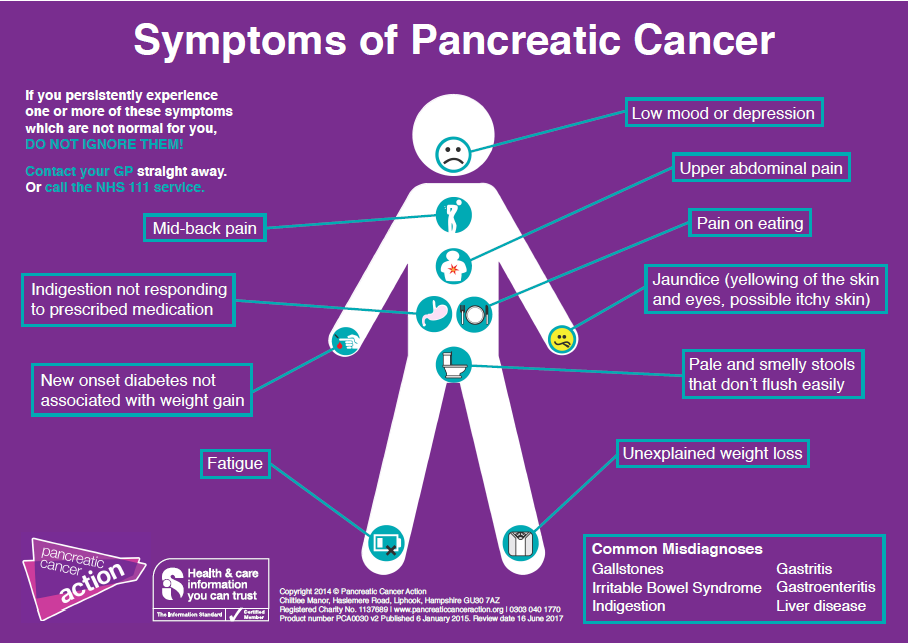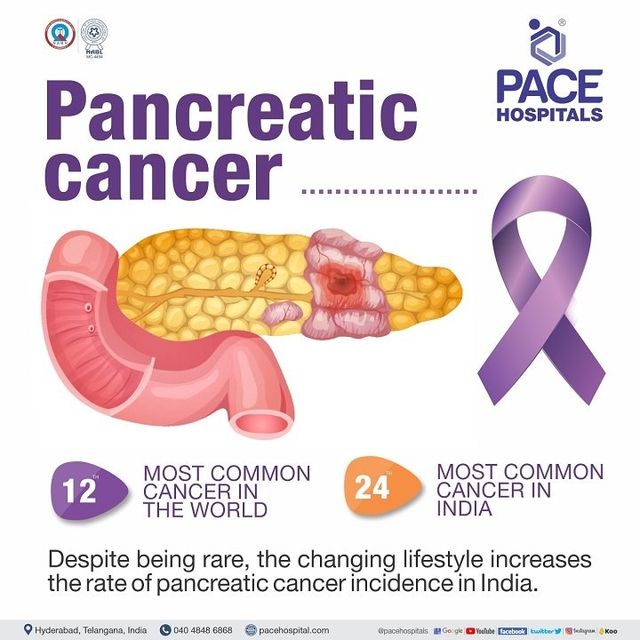Sorry, pancreatic cancer, but the battle against you is far from over. Pancreatic cancer remains one of the most aggressive forms of cancer, often detected at advanced stages due to its subtle symptoms. However, advancements in research, early detection methods, and treatment options are giving hope to patients and families worldwide. In this comprehensive article, we will explore everything you need to know about pancreatic cancer, including its causes, symptoms, diagnosis, treatment, and prevention strategies.
Pancreatic cancer has earned the nickname "the silent killer" because it often goes unnoticed until it reaches advanced stages. Despite its challenges, understanding the disease and staying informed is crucial for early detection and effective management. Whether you're a patient, caregiver, or someone seeking knowledge, this article aims to provide valuable insights to help you navigate through this difficult journey.
By delving into the latest research, expert opinions, and real-life experiences, we aim to empower readers with the tools they need to fight pancreatic cancer. Knowledge is power, and together, we can make a difference in the battle against this formidable disease.
Read also:Alina Rose Leaks Unveiling The Truth Behind The Controversy
Table of Contents
- What is Pancreatic Cancer?
- Types of Pancreatic Cancer
- Causes and Risk Factors
- Symptoms of Pancreatic Cancer
- Diagnosis and Staging
- Treatment Options
- Prevention Strategies
- Emotional Support for Patients
- Latest Research and Breakthroughs
- Conclusion and Next Steps
What is Pancreatic Cancer?
Pancreatic cancer occurs when abnormal cells in the pancreas grow uncontrollably, forming a tumor. The pancreas is a vital organ located behind the stomach that produces digestive enzymes and hormones like insulin. This type of cancer is particularly challenging because it often spreads quickly and is difficult to detect early. Early detection remains one of the most critical factors in improving outcomes for patients.
Pancreatic cancer accounts for approximately 3% of all cancers in the United States but is responsible for around 7% of cancer deaths. The disease disproportionately affects older adults, with most cases diagnosed in individuals over 65 years of age. Understanding the basics of pancreatic cancer is the first step toward combating its devastating effects.
Understanding the Role of the Pancreas
The pancreas plays a dual role in the body: exocrine and endocrine functions. The exocrine function involves producing enzymes that aid digestion, while the endocrine function regulates blood sugar levels through hormones like insulin. When cancer develops in the pancreas, it can disrupt these essential functions, leading to severe health complications.
Types of Pancreatic Cancer
Pancreatic cancer is classified into two main types based on the cells affected:
- Exocrine Tumors: These account for about 95% of all pancreatic cancers and originate in the cells that produce digestive enzymes.
- Endocrine Tumors: Also known as neuroendocrine tumors, these are rare and develop in the hormone-producing cells of the pancreas.
Among exocrine tumors, pancreatic ductal adenocarcinoma (PDAC) is the most common subtype. It is also one of the most aggressive forms of pancreatic cancer.
Subtypes of Pancreatic Cancer
While PDAC dominates the landscape of pancreatic cancer, other subtypes include:
Read also:Nicki Minaj Nudes The Truth Behind The Controversy And Its Impact
- Ampullary cancer
- Intraductal papillary mucinous neoplasm (IPMN)
- Mucinous cystic neoplasm (MCN)
Causes and Risk Factors
The exact cause of pancreatic cancer remains unclear, but several risk factors have been identified:
- Age: Most cases occur in individuals over 65 years old.
- Smoking: Tobacco use significantly increases the risk of developing pancreatic cancer.
- Obesity: Being overweight or obese is associated with a higher risk.
- Family History: A family history of pancreatic cancer or certain genetic syndromes can increase susceptibility.
- Chronic Pancreatitis: Long-term inflammation of the pancreas is a known risk factor.
While some risk factors, such as age and genetics, cannot be controlled, lifestyle changes like quitting smoking and maintaining a healthy weight can help reduce the risk.
Genetic Factors in Pancreatic Cancer
Certain inherited genetic mutations, such as BRCA1 and BRCA2, can predispose individuals to pancreatic cancer. Additionally, conditions like Lynch syndrome and familial atypical multiple mole melanoma (FAMMM) syndrome are linked to increased risk. Genetic counseling and testing can help identify individuals at higher risk, enabling proactive management.
Symptoms of Pancreatic Cancer
Pancreatic cancer often presents with nonspecific symptoms, making early detection challenging. Common signs include:
- Jaundice (yellowing of the skin and eyes)
- Abdominal or back pain
- Unintended weight loss
- Loss of appetite
- Dark urine and pale stools
As the disease progresses, symptoms may become more pronounced. Early recognition of these warning signs is crucial for timely intervention.
Why Early Detection is Crucial
Early-stage pancreatic cancer rarely causes noticeable symptoms, which is why it often goes undetected until it spreads to other parts of the body. Regular check-ups and awareness of potential symptoms can improve the chances of early diagnosis and better outcomes.
Diagnosis and Staging
Diagnosing pancreatic cancer involves a combination of imaging tests, blood tests, and biopsies. Common diagnostic tools include:
- Imaging Tests: CT scans, MRIs, and PET scans help visualize tumors and assess their size and location.
- Blood Tests: Tumor markers like CA 19-9 can indicate the presence of cancer.
- Biopsy: A tissue sample is analyzed to confirm the diagnosis.
Once diagnosed, staging determines how far the cancer has spread. Stages range from 0 (localized) to IV (metastatic). Accurate staging guides treatment decisions and helps predict prognosis.
Challenges in Diagnosing Pancreatic Cancer
The pancreas' location deep within the abdomen makes it difficult to access for examination. Additionally, the lack of specific symptoms in early stages complicates diagnosis. Advances in imaging technology and biomarker research aim to overcome these challenges.
Treatment Options
Treatment for pancreatic cancer depends on the stage, location, and overall health of the patient. Common approaches include:
- Surgery: Removing the tumor is often the first-line treatment for localized cancers.
- Chemotherapy: Drugs are used to kill cancer cells or shrink tumors.
- Radiation Therapy: High-energy beams target and destroy cancer cells.
- Immunotherapy: Boosting the immune system to fight cancer is a promising area of research.
Combination therapies, where multiple treatments are used together, are increasingly common for advanced cases.
Innovations in Treatment
Recent breakthroughs in precision medicine and targeted therapies offer hope for improved outcomes. Clinical trials are exploring new drugs and treatments tailored to individual patients' genetic profiles.
Prevention Strategies
While not all cases of pancreatic cancer can be prevented, certain lifestyle changes can reduce risk:
- Quit smoking
- Maintain a healthy weight
- Eat a balanced diet rich in fruits and vegetables
- Limit alcohol consumption
- Stay physically active
For individuals with a strong family history or genetic predisposition, regular monitoring and genetic counseling are essential.
Screening for High-Risk Individuals
Screening programs for high-risk individuals, such as those with hereditary syndromes, can detect pancreatic cancer at earlier stages. Endoscopic ultrasound and MRI are commonly used for surveillance in these cases.
Emotional Support for Patients
Dealing with a pancreatic cancer diagnosis can be emotionally overwhelming. Support from loved ones, support groups, and mental health professionals is vital for coping with the emotional toll of the disease.
Many organizations offer resources for patients and caregivers, including counseling services, educational materials, and community support networks. Building a strong support system can improve quality of life during treatment and recovery.
Importance of Mental Health
Mental health is an integral part of overall well-being. Patients and caregivers should prioritize self-care and seek professional help if needed. Techniques such as mindfulness, meditation, and therapy can help manage stress and anxiety.
Latest Research and Breakthroughs
Ongoing research is paving the way for new treatments and better outcomes in pancreatic cancer. Key areas of focus include:
- Genomic studies to identify new targets for treatment
- Development of novel drugs and therapies
- Improving early detection methods
- Understanding the role of the immune system in cancer
Collaboration between researchers, clinicians, and patients is essential for accelerating progress in this field.
The Role of Clinical Trials
Clinical trials play a critical role in advancing pancreatic cancer research. They provide access to cutting-edge treatments and help validate new therapies. Patients interested in participating should consult their healthcare providers for available opportunities.
Conclusion and Next Steps
Pancreatic cancer remains a formidable challenge, but advances in research, diagnosis, and treatment offer hope for the future. By staying informed and proactive, patients and families can better navigate the complexities of this disease. Remember, early detection and prevention are key to improving outcomes.
We encourage readers to share this article, engage in discussions, and explore additional resources to deepen their understanding of pancreatic cancer. Together, we can make strides toward a world where "sorry, pancreatic cancer" is more than just words—it's a promise to fight and a commitment to finding a cure.
For more information, visit reputable sources such as the American Cancer Society, National Cancer Institute, and Pancreatic Cancer Action Network. Stay informed, stay hopeful, and never give up the fight against pancreatic cancer.


